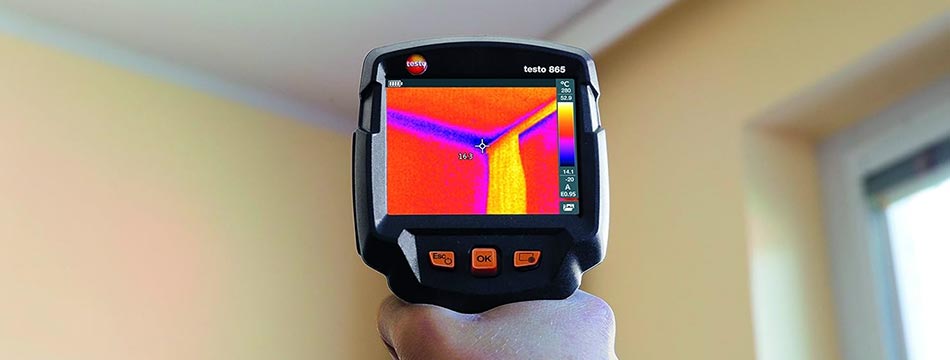
Thermal imaging cameras are essential for surveyors, councils, landlords, and plumbers involved in home inspections and maintenance. Infrared imaging cameras detect issues that are invisible to the naked eye. As a result, professionals can identify and locate areas of dampness, water ingress, mould, and heat loss quickly, easily, and at an earlier stage. This guide will outline the benefits and applications of thermal cameras and help those involved in home inspections to select the best thermal imaging camera for mould detection; finding water leaks; and identifying sources of heat loss.
Shop Home Inspection Thermal CamerasQuick Links
- Why Use a Thermal Camera for Home Inspection?
- Where to Use a Thermal Imaging Camera to Find Water Leaks & Mould
- When to Use a Thermal Camera for Home Inspection
- Who Benefits from Using a Thermal Imaging Camera for Mould Detection & Leak Location?
- Recommended Home Inspection Thermal Cameras
- Conclusion: Detect Damp & Mould: Which Thermal Camera is Best for Home Inspections?
Why Use a Thermal Camera for Home Inspection?
Thermal cameras offer a non-invasive way to detect and diagnose a range of building issues.
Damp Detection
Thermal cameras can be used to identify areas of excess moisture that could lead to damp and structural damage.
Finding Water Ingress
Using a thermal imaging camera to find water leaks allows you to pinpoint water ingress in roofs, walls, and plumbing systems.
For more information on how thermal imaging cameras can help plumbers find leaks and assess moisture/water damage, please read our article Five Reasons Plumbers and Heating Engineers Need a Thermal Camera.
Locating Mould and Areas Susceptible to Mould
Professionals using a thermal imaging camera for mould detection can identify areas already subject to mould and places that are at risk of mould growth.
Locating Areas of Heat Loss
Thermal imaging cameras for home heat loss detection enable councils, landlords, plumbers, and surveyors to help their constituents/tenants/clients reduce heating costs by identifying areas of energy inefficiency due to, for example, missing insulation and drafts.
The following articles detail how you can use an inexpensive thermal camera to identify sources of heat loss:
- Winter Is Coming: Prepare Your Home for the Long Night(s) Using FLIR Thermal Cameras
- FLIR’s Top Tips For Ensuring Energy Efficiency
- How Do Thermal Cameras Help You Save on Your Energy Bills?
Where to Use a Thermal Imaging Camera to Find Water Leaks & Mould
Thermal cameras can be used in various environments, including:
- Homes: Inspecting residential properties for potential issues before buying or selling, and for routine maintenance.
- Businesses: Ensuring commercial properties are free from damp, leaks, and inefficiencies.
- Construction Sites: Checking the quality of insulation, identifying damp issues, and ensuring the integrity of the building envelope.
Many councils, charities, and businesses have adopted thermal imaging as part of their energy efficiency measures. The articles below highlight examples of organisations using a thermal camera for home inspection.
- News Roundup: Thermal Cameras Adopted by Multiple UK Organisations to Reduce Energy Bills & Emissions
- PASS Proudly Provides FLIR Thermal Cameras for Octopus Energy Home Efficiency Surveys
- News Roundup: Thermal Cameras Used to Reduce Energy Bills & Carbon Footprints
When to Use a Thermal Camera for Home Inspection
Thermal cameras are particularly useful in the following contexts:
- Pre-Purchase Inspections: Identifying potential problems in a property before purchase.
- Routine Maintenance: Regularly checking properties for signs of damp, mould, and heat loss.
- Post-Repair Checks: Ensuring that repairs have been completed and that no issues remain.
Who Benefits from Using a Thermal Imaging Camera for Mould Detection & Leak Location?
- Homeowners: Ensuring their homes are safe, efficient, and free from hidden problems.
- Landlords: Maintaining properties to a high standard to avoid tenant complaints and costly repairs.
- Businesses: Protecting assets and ensuring the comfort and safety of employees.
- Building Surveyors and Architects: Providing comprehensive inspection reports and ensuring the integrity of their designs.
Recommended Home Inspection Thermal Cameras
To help you choose the best thermal camera for home inspections, the following models are recommended for mould detection, detecting heat loss, and locating water leaks.
Basic Thermal Imaging Camera for Mould Detection & Leak Location
The thermal imaging cameras below are suitable for finding water leaks and mould indoors.
1. Testo 865

- Resolution: 160x120px
- Usage: Fixed lens, basic indoor reporting.
- Ideal For: Daily maintenance and installation applications.
2. FLIR One Edge Pro
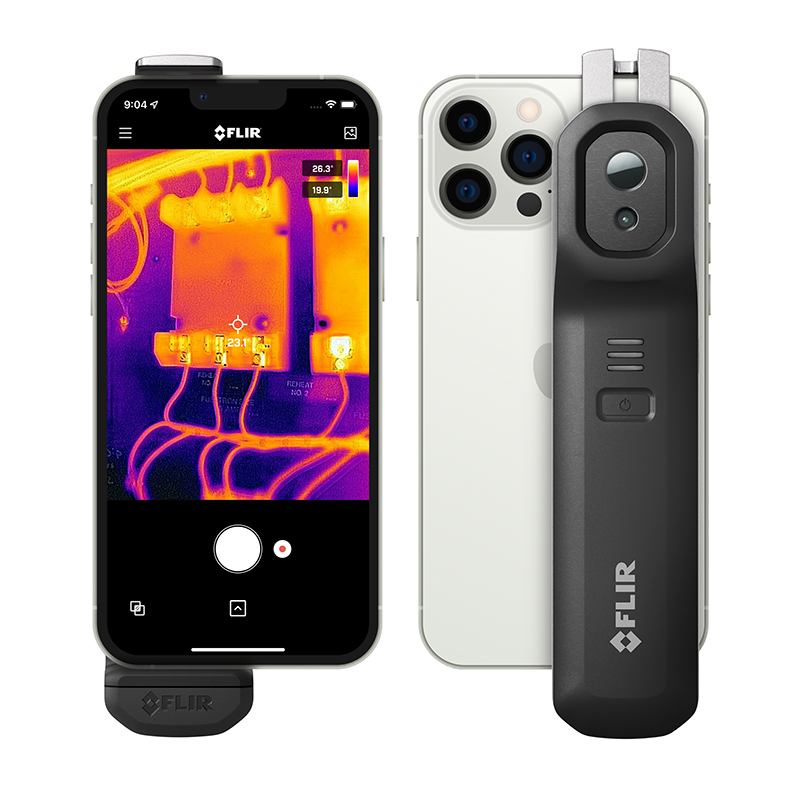
- Resolution: 160x120px
- Usage: Mobile device (iOS/Android), basic indoor reporting.
- Ideal For: Basic damp and mould detection indoors.
3. FLIR C5
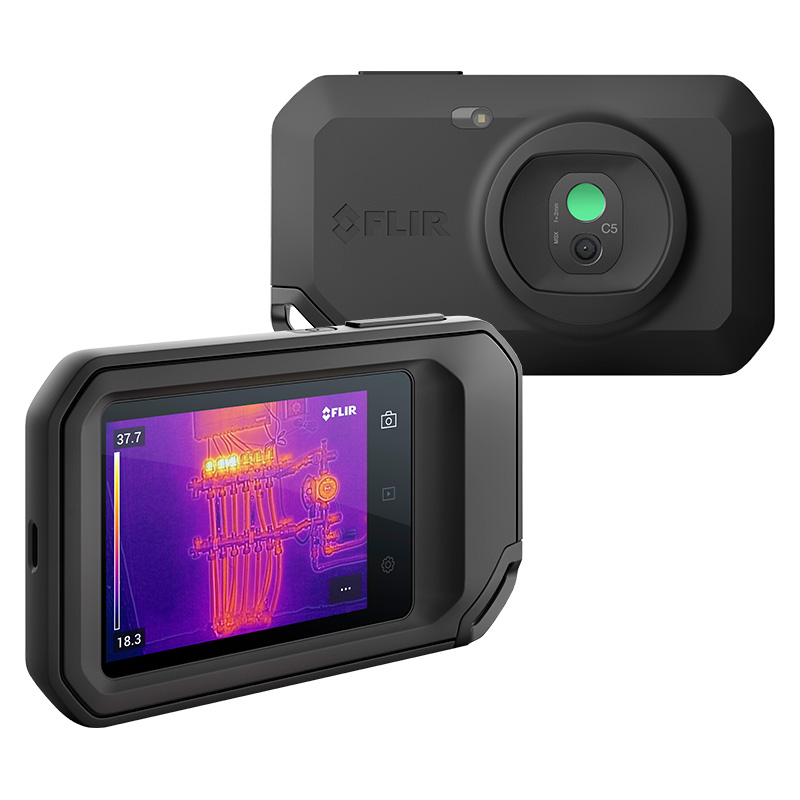
- Resolution: 160x120px
- Usage: Fixed lens, basic indoor reporting.
- Ideal For: Home inspections and finding water leaks.
4. FLIR E5 Pro
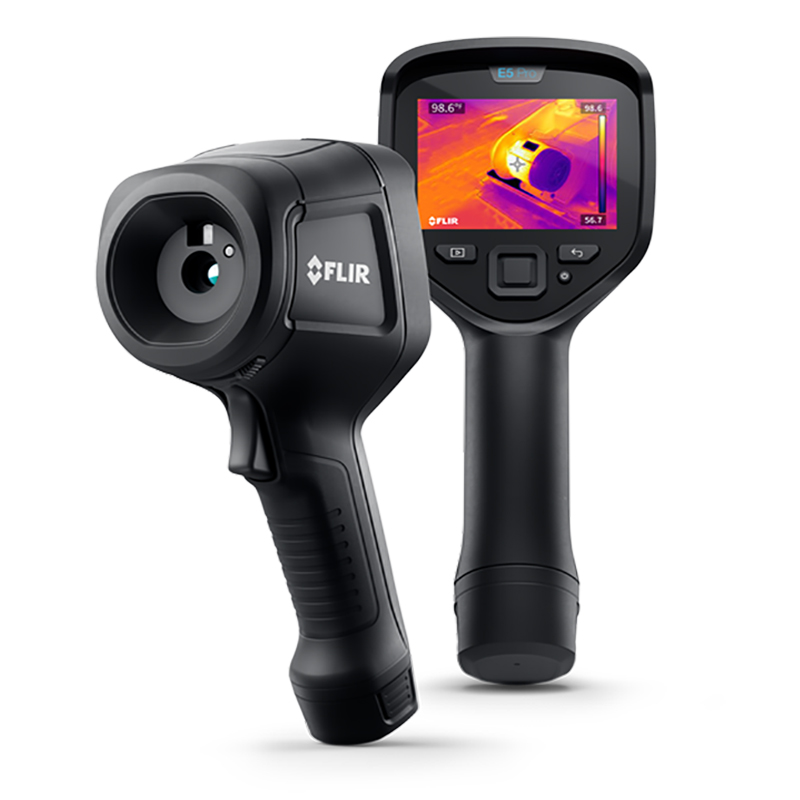
- Resolution: 160x120px
- Usage: Fixed lens, basic indoor reporting.
- Ideal For: Mould detection and identifying areas of heat loss.
5. Fluke PTi120
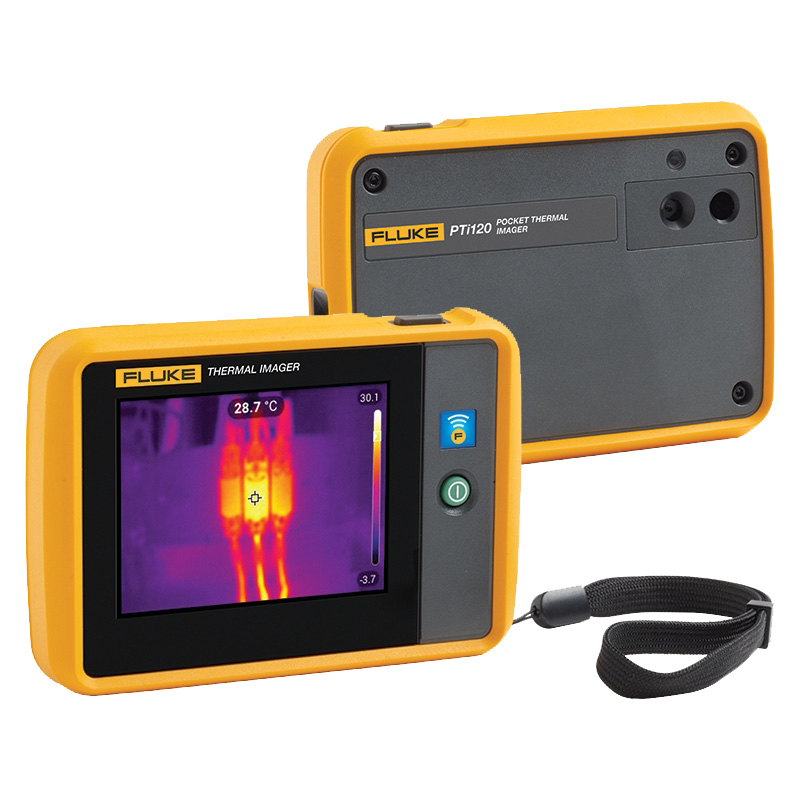
- Resolution: 120x90px
- Usage: Fixed lens, basic indoor reporting.
- Ideal For: Basic thermal imaging for home inspections.
6. Fluke TiS20+
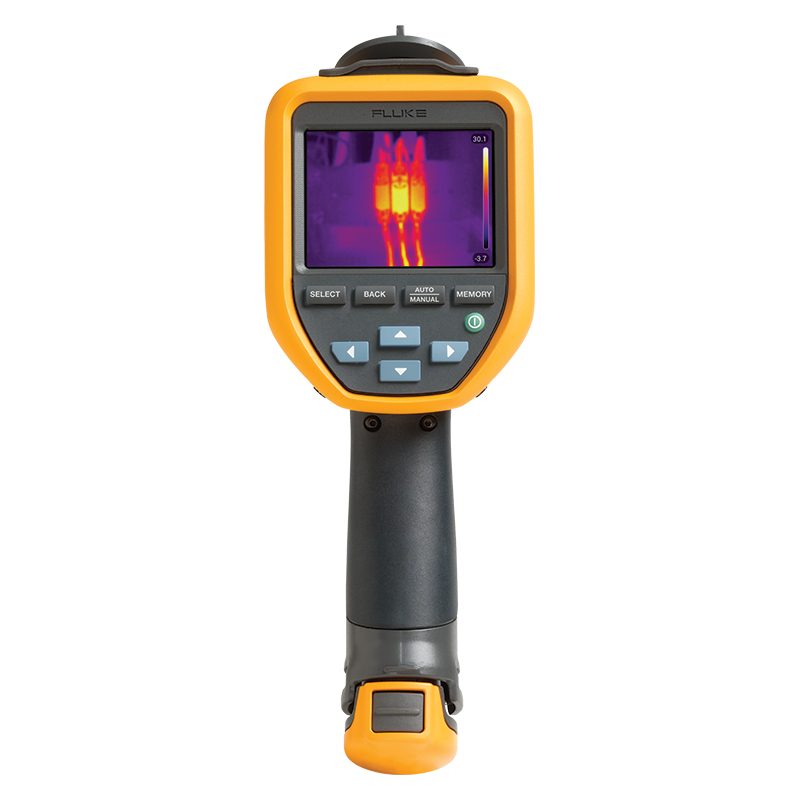
- Resolution: 120x90px
- Usage: Fixed lens, basic indoor reporting.
- Ideal For: Indoor leak detection and mould inspections.
Mid-Range Thermal Imaging Camera to Find Water Leaks & Mould
These mid-range thermal cameras are suitable for inspecting the inside and outside of buildings to locate areas of
heat loss, mould, and water leaks.
1. FLIR E6 Pro
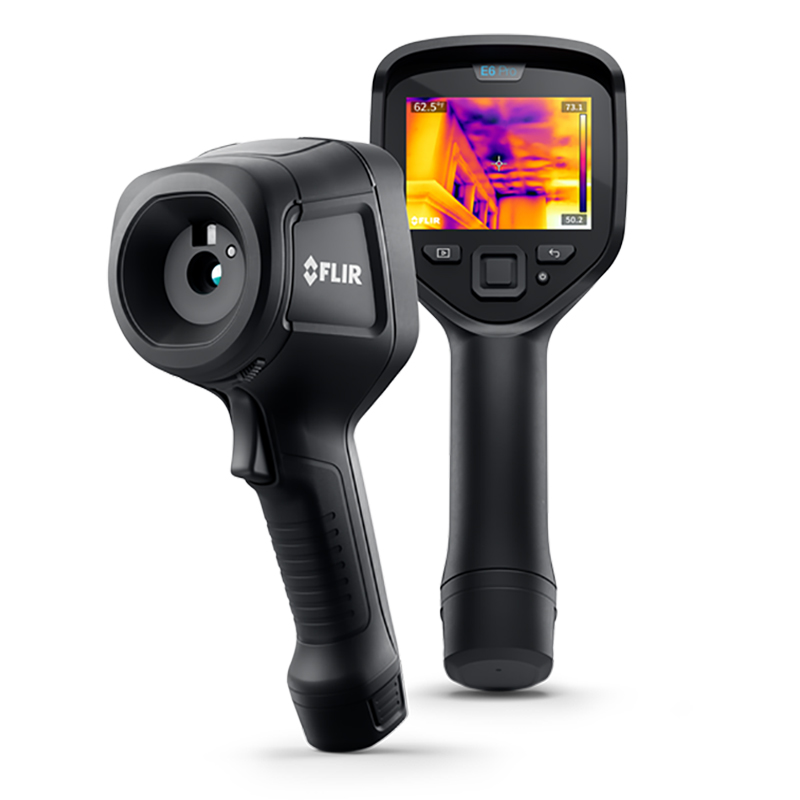
- Resolution: 240x180px
- Usage: Fixed lens, basic indoor reporting.
- Ideal For: Detecting water ingress and heat loss.
2. FLIR E8 Pro
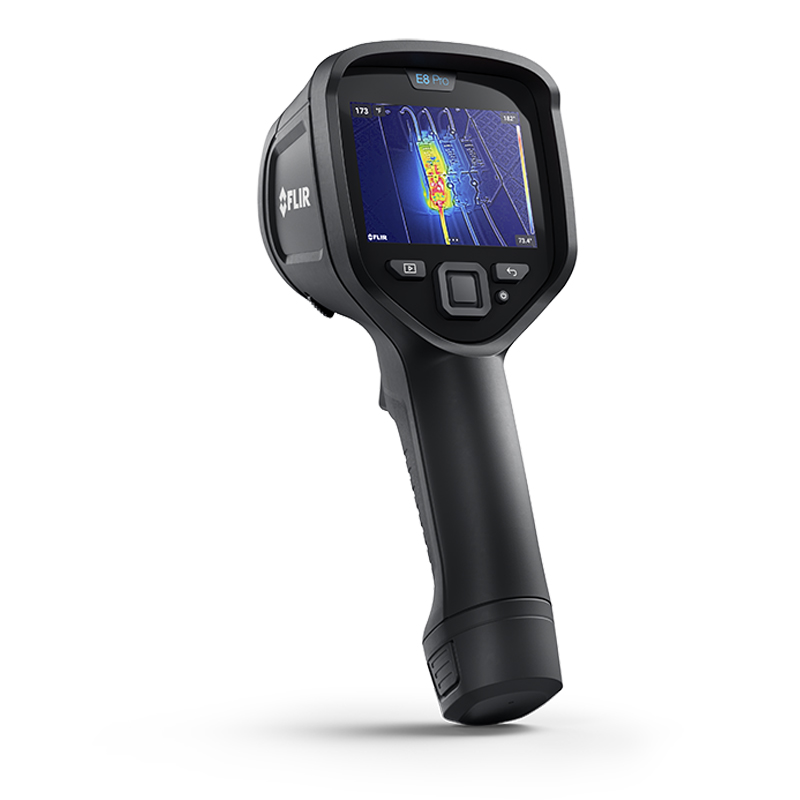
- Resolution: 320x240px
- Usage: Fixed FOV, basic indoor reporting.
- Ideal For: Home heat loss detection and mould inspections.
3. FLIR E54
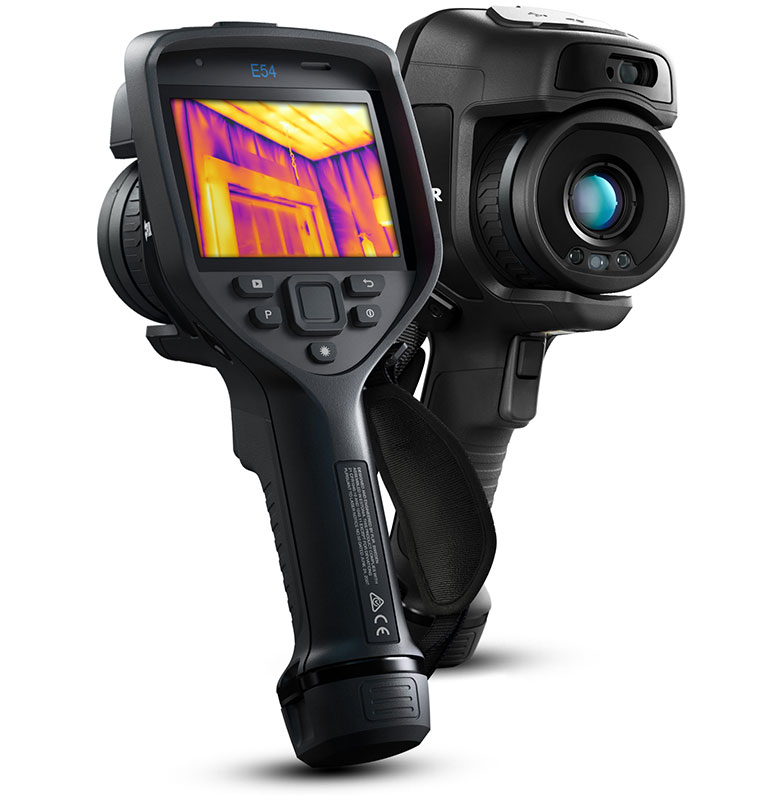
- Resolution: 320x240px
- Usage: Indoor/outdoor, fixed FOV.
- Ideal For: Comprehensive home inspections and detecting leaks.
4. FLIR E76
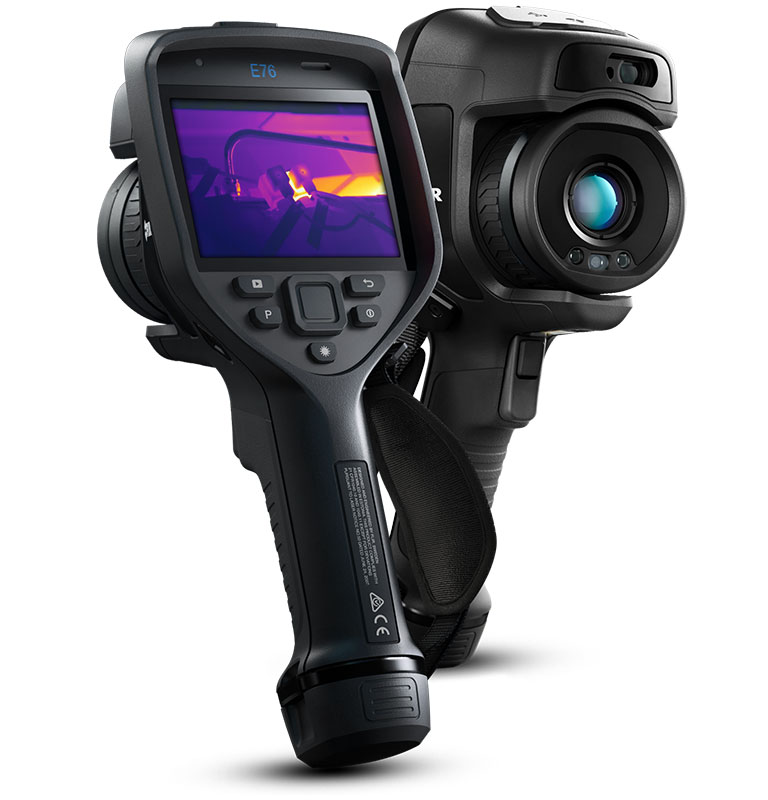
- Resolution: 320x240px
- Usage: Indoor/outdoor, interchangeable lenses (14°, 24°, 42°, 80°).
- Ideal For: Professional building efficiency assessments and leak detection.
5. FLIR E86
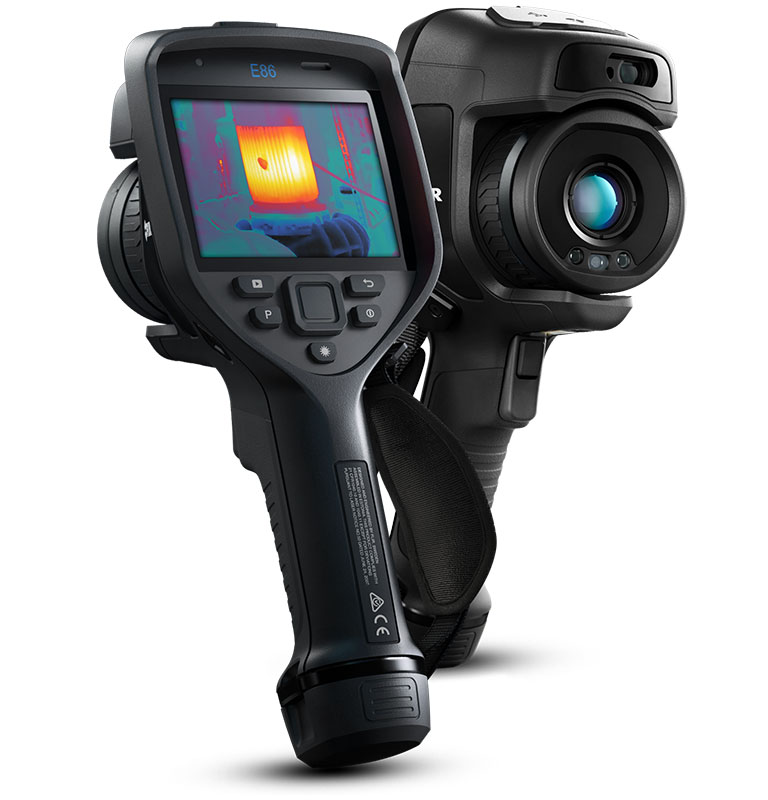
- Resolution: 484x348px
- Usage: Indoor/outdoor, interchangeable lenses.
- Ideal For: Detailed mould detection and building inspections.
6. FLIR E96
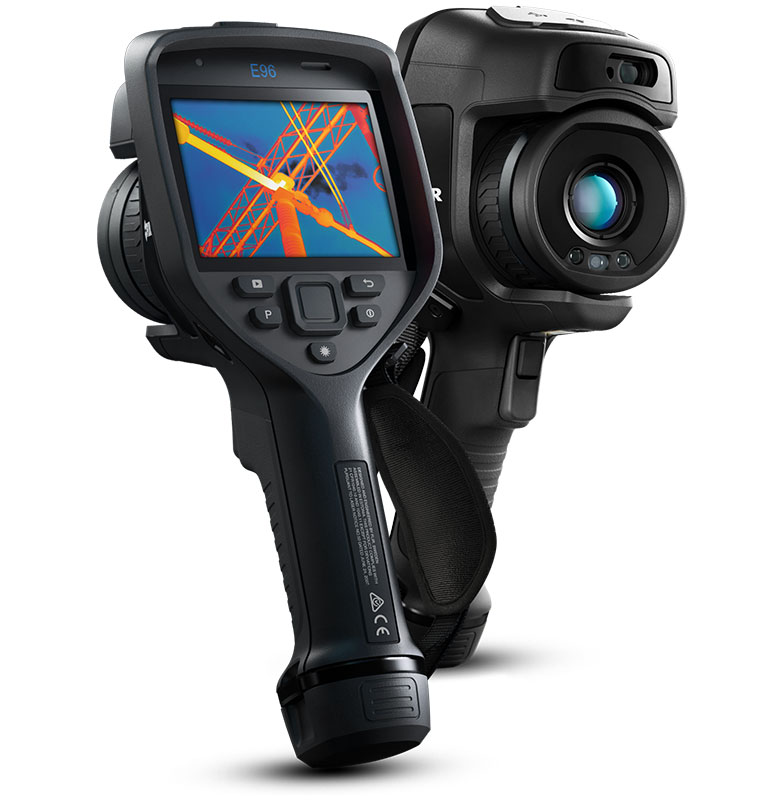
- Resolution: 640x480px
- Usage: Indoor/outdoor, interchangeable lenses.
- Ideal For: Professional-grade thermal inspections and heat loss detection.
7. Fluke TiS60+
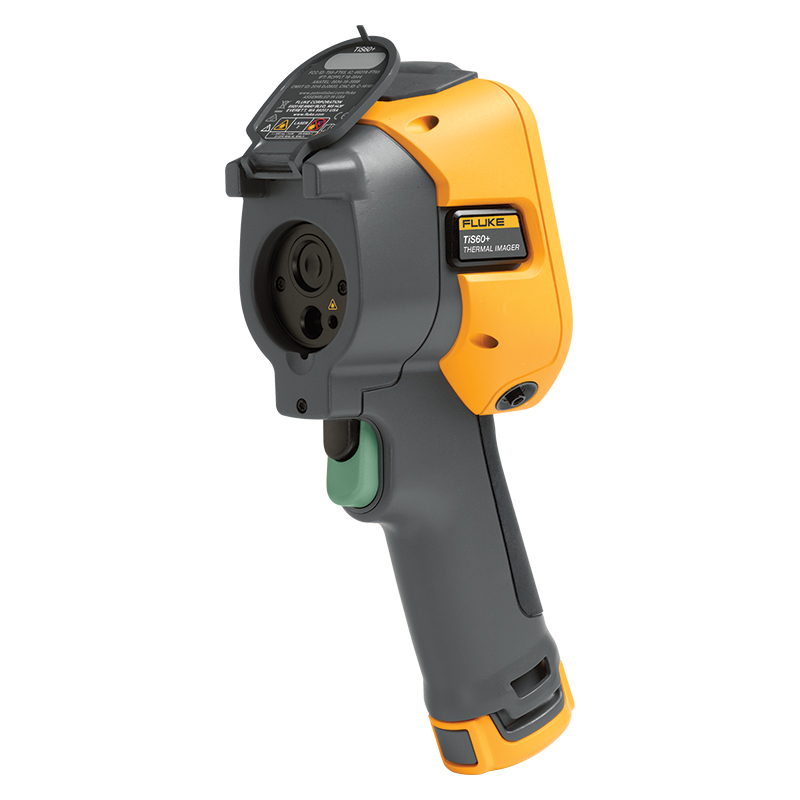
- Resolution: 320x240px
- Usage: Indoor/outdoor, fixed FOV.
- Ideal For: Mid-range thermal imaging for home and business inspections.
Professional Thermal Camera for Home Inspection
Suitable for indoor and outdoor home inspections, the following thermal imaging cameras can be used to detect heat
loss, water leaks, and mould.
1. FLIR T530
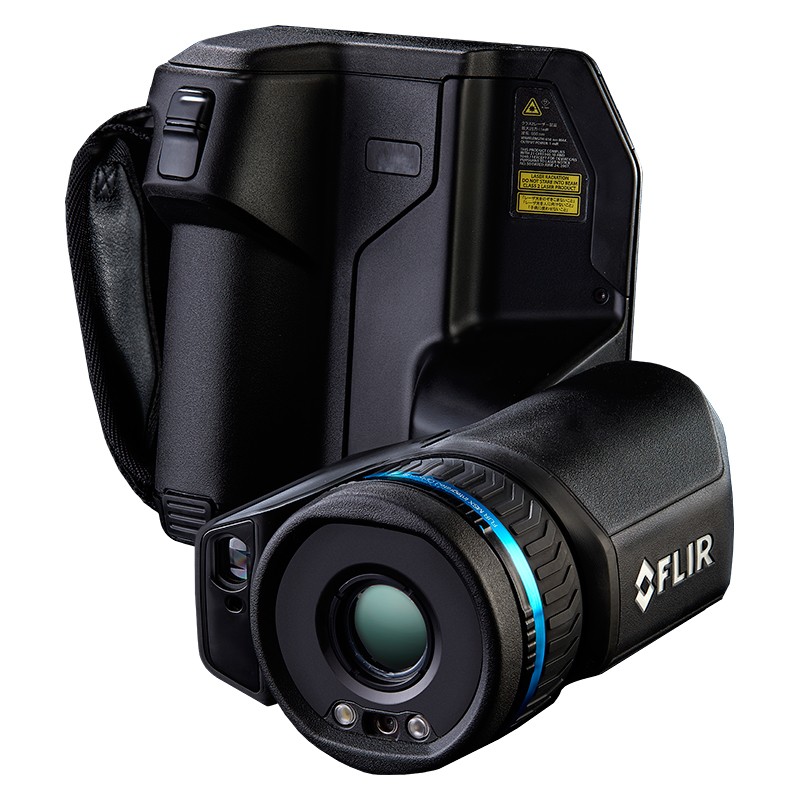
- Resolution: 320x240px
- Usage: Professional reporting, interchangeable lenses.
- Ideal For: Detailed thermal imaging for leaks and insulation checks.
2. FLIR T540
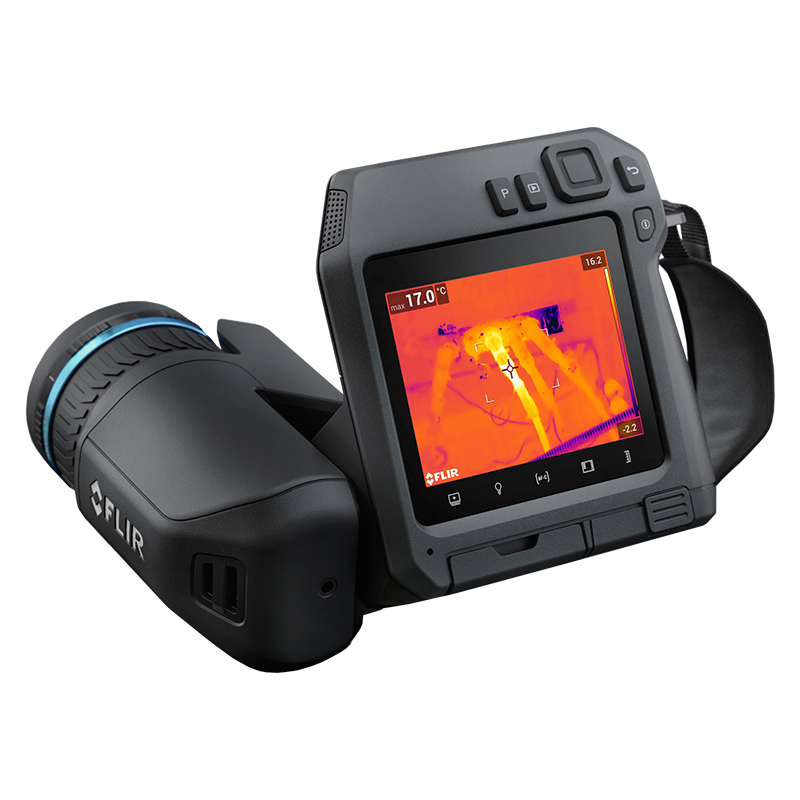
- Resolution: 484x348px
- Usage: Professional reporting, interchangeable lenses.
- Ideal For: Comprehensive thermal inspections and mould detection.
3. FLIR T560
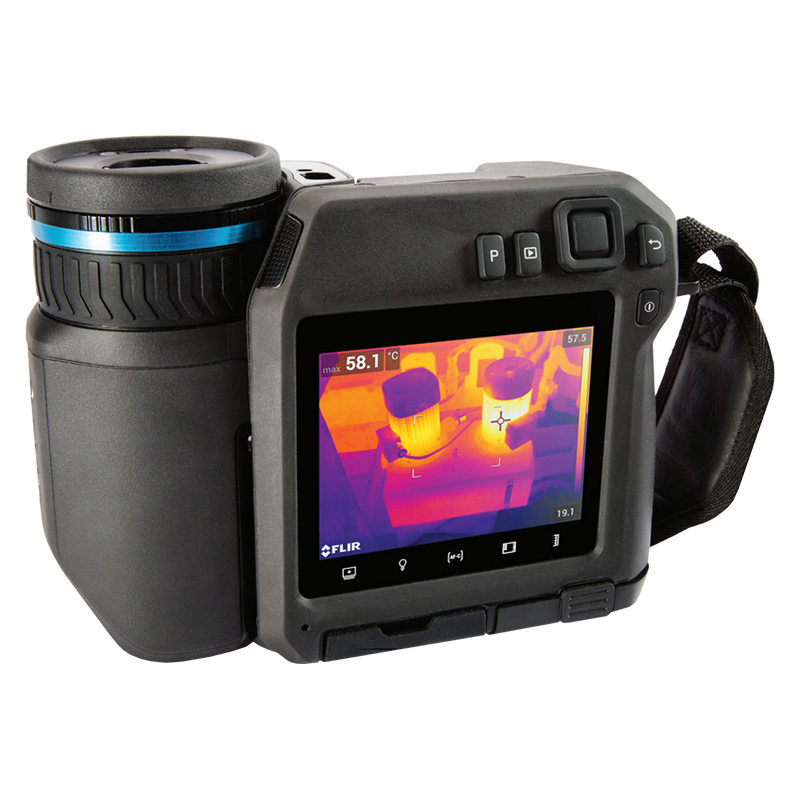
- Resolution: 640x480px
- Usage: Professional reporting, interchangeable lenses.
- Ideal For: Advanced thermal imaging for building efficiency and leak detection.
4. FLIR T1020
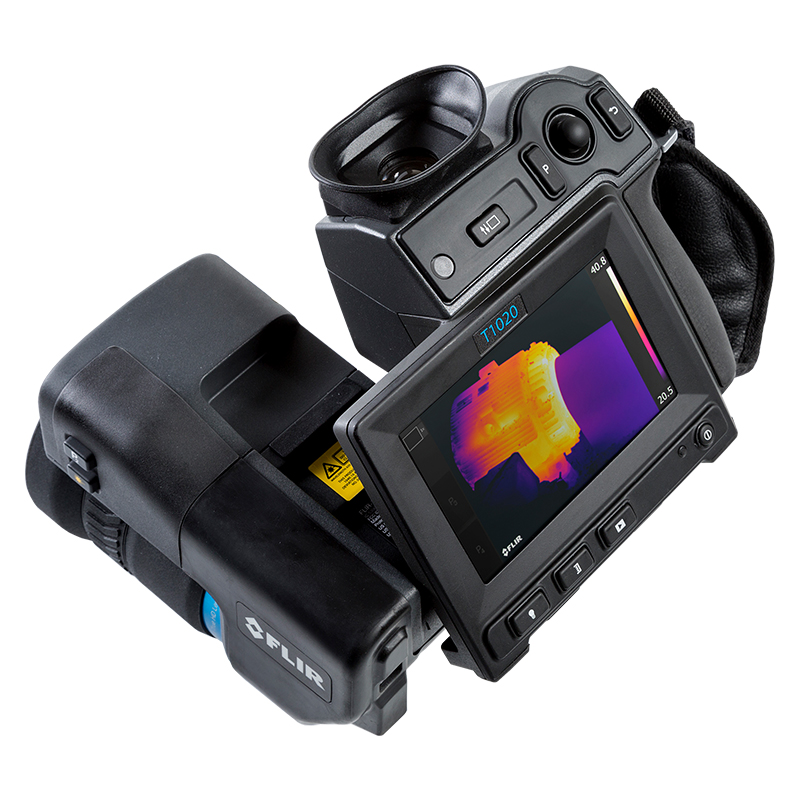
- Resolution: 1020x780px
- Usage: Professional reporting, interchangeable lenses.
- Ideal For: Highest resolution thermal imaging for detailed inspections.
5. Fluke Ti401 Pro

- Resolution: 640x480px
- Usage: Professional reporting, interchangeable lenses (2x tele, 25 macro, 4x tele).
- Ideal For: Detailed inspections for heat loss and leak detection.
6. Fluke TiX501
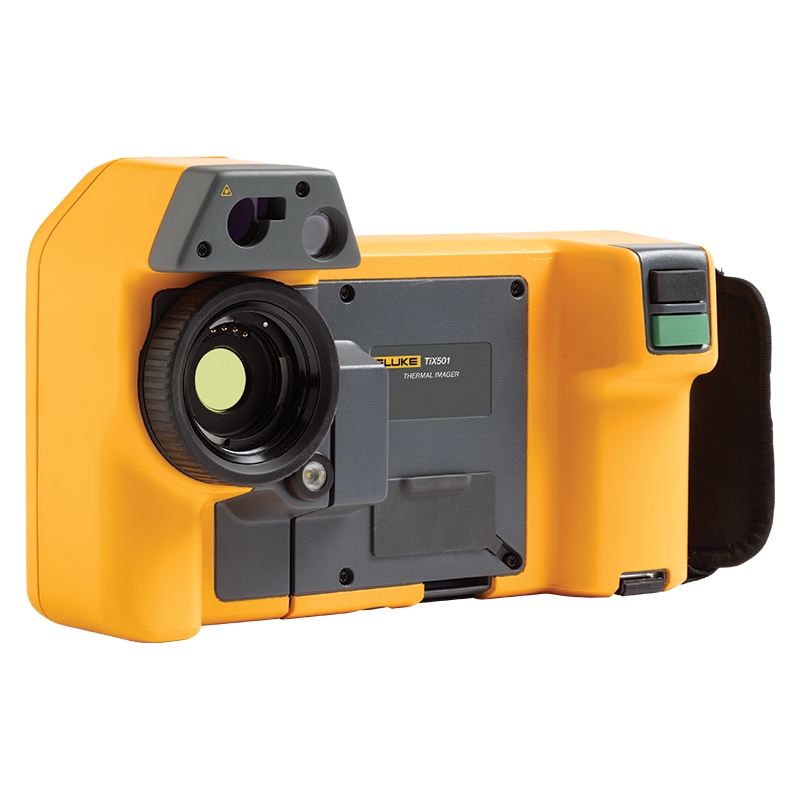
- Resolution: 640x480px
- Usage: Professional reporting, interchangeable lenses.
- Ideal For: Comprehensive thermal inspections for buildings.
7. Fluke TiX580
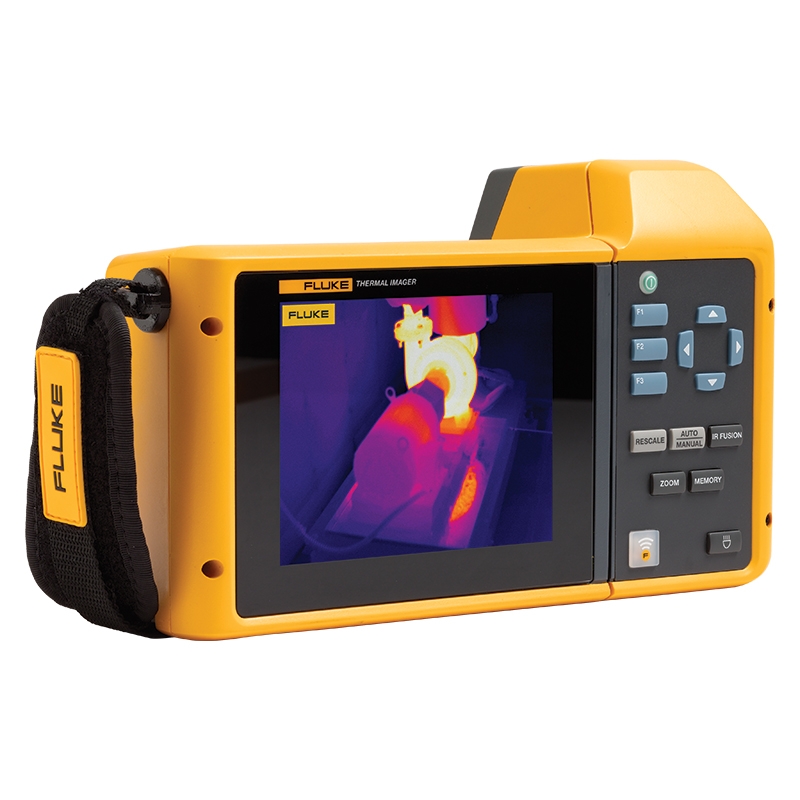
- Resolution: 640x480px
- Usage: Professional reporting, interchangeable lenses (2x tele, 4x tele, 25 macro, 46 wide).
- Ideal For: Advanced thermal imaging for detailed home and business inspections.
Once you have selected an appropriate thermal camera for your needs, check out our article, FLIR’s Tips to Avoid the Top Three Home Inspection Mistakes, to get the maximum benefit out of your chosen model.
Conclusion: Detect Damp & Mould: Which Thermal Camera is Best for Home Inspections?
Choosing the best thermal camera for home inspections depends on your specific needs and applications. By investing in a suitable thermal imaging camera, architects, building surveyors, councils, landlords, maintenance technicians, plumbers, and retrofit companies, can ensure they provide thorough and accurate inspections, ultimately saving time, money, and improving building safety and efficiency. Whether you're looking for the best thermal camera for home inspections; the perfect thermal imaging camera for mould detection; the ideal thermal camera for home heat loss location; or the top thermal imaging camera to find water leaks, there's a model to meet your needs.
Shop Home Inspection Thermal Cameras

